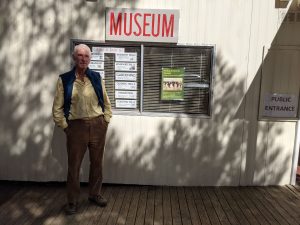Mars One or Mars Direct?

Dutch entrepreneur Bas Lansdorp has announced his non-profit organisation, Mars One’s, plan to colonise Mars by 2027.
However, the projected timeframe, technical and financial strategies have been met by criticism from experts in the field.
President of Mars Society and Pioneer Astronautics Dr Robert Zubrin questioned the financial feasibility of Mars One.
With a projected mission budget of $6 billion, Dr Zubrin said it may not be enough to fund the mission in its entirety in establishing a settlement in Mars.
“[Mars One] needs constant private investments for ongoing missions to Mars,” said Dr Zubrin.
“Does Bas Lansdorp have the resources, connections, skills and so forth required to pull an organisation like to together? I think that’s quite doubtful.”
Recently, its financial feasibility has been subject to skepticism when a failure to procure investments delayed the project by two years. In February 2015, discussions fell through between Mars One and Endemol, producers of the Big Brother series.
Alternatively, Dr Zubrin is an advocate of Mars Direct, which proposed a detailed and affordable alternative to sending humans to Mars within a decade.
However, unlike Mars One it plans to bring the astronauts back after 18 months on the surface.
Mars Direct’s counterplan to the impracticality of carrying enough fuel for the return trip with exponential costs, has been the use of “in-situ resource utilisation”, using the resources found on Mars rather than taking them from Earth.
Splitting the mission into two parts, the primary concept is to initially send a nuclear powered reactor to the Mars surface to create fuel for the return trip.
Speaking at ANU on March 2015, Dr Zubrin has said the projected budget would be $40 billion over 20 years or $2 billion a year. “I think that given that we have a space agency that we fund at $18 billion a year, taking 13 percent of the budget to actually explore space is justified.”
Mars 2020 Rover will have one of its payload be fitted with the Mars Oxygen ISRU Experiment which would investigate the production of oxygen from the atmospheric carbon dioxide on Mars. Its success could result in the use of oxygen for life support and for fuel, the latter of which will further support Mars Direct.
Listen to the full recording of Dr Robert Zubrin’s Mars Direct: Humans to the Red Planet within a decade lecture at ANU on 23rd of March 2015.




Be the first to comment!